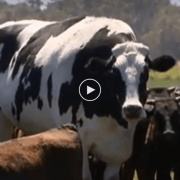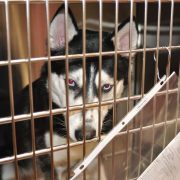ICYMI: 9 Big Victories You Scored for Animals This Month
Companies are ending animal tests; protecting lobsters; banning fur, mohair, angora, and exotic skins; and refusing to sponsor elephant polo games. Take a look at all of the PETA victories in just one month that you helped us win.
Ready to win some more? Make sure that you’re receiving PETA’s action alerts so that you’re among the first to know when animals urgently need your help. We’ll send you a quick e-mail letting you know what’s happening and what we’re doing about it. Just type in your name to have PETA send a message to an animal abuser on your behalf. We’ve won thousands of victories for animals, thanks to our Action Team responders, and you can help by joining this lifesaving group today.






